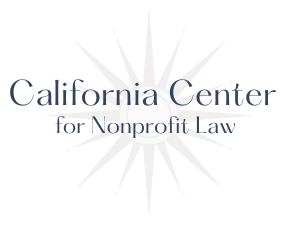
Fundraising for Charitable Organizations: 8 Things You Need to Know
Charitable organizations regularly engage in significant fundraising, as it often takes money to achieve their exempt purposes. However, fundraising generates various tax concerns, such as the deductibility of contributions to charitable organizations and whether fundraising activities trigger tax liabilities.
Here are eight things that charitable organizations should know about the fundraising and federal taxes:
- If a donor gives $250 or more, they must have written acknowledgment from the organization to claim the donation as a charitable contribution on their federal income tax return. The acknowledgment must contain the following:
- The name of the charitable organization;
- The amount of the contribution;
- For non-cash contributions, a description of the donated property and one of the following:
- A statement that no goods or services were provided in return for the donation;
- A description and good faith estimate of the value of the goods and services provided in return for the contribution; or
- A statement that goods or services provided in return for the contribution were intangible religious benefits.
- Organizations ineligible to receive deductible contributions must disclose in all their fundraising solicitations that donations to them are NOT tax-deductible. These organizations include social welfare organizations, labor organizations, social clubs, fraternal organizations, and political organizations. Some exceptions do apply under IRC Section 6113.
- Fundraising solicitations are any solicitations for contributions or gifts made in written or printed form by mail, internet, television, radio, or telephone. However, exclusions exist, such as billing advertisers in an organization’s publications or members or nonmembers for food and beverages at a social club.
- Certain organizations must tell their members the portion of dues that are not deductible as part of the organization’s lobbying and political expenses. These organizations include social welfare organizations (but not veteran organizations), labor, agricultural, and horticultural organizations, and business leagues.
- If a quid pro quo payment exceeds $75, the IRC Section 170(c) organization must issue a timely written disclosure statement to the donor. A quid pro quo payment is part payment for goods or services and part contribution. Some exemptions to the disclosure requirement exist, such as the token, membership, and intangible religious benefit exemptions.
- Public charities must keep supporting documents showing the amounts and sources of gross receipts for cash donations. They also must track the names of contributors and amounts received from them, as they may be subject to a Schedule B filing requirement.
- Selling non-cash contributions may trigger tax liabilities. Non-cash contributions also may trigger various reporting requirements.
- Vehicle donation programs can adversely affect an organization’s exempt status if they improperly benefit private parties. Proceeds from the sales of the donated vehicles must exclusively fund charitable programs. The charity also must provide the appropriate written acknowledgment to the donor.
Call the California Center for Nonprofit Law Today
If you need legal advice or assistance, we are here to help. Contact an experienced nonprofit lawyer today. Call the California Center for Nonprofit Law offices at (949) 892-1221, email us at info@npolawyers.com, or contact us online for more information today. We offer a wealth of experience handling the unique legal issues that charitable organizations routinely face.
